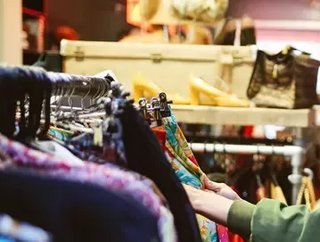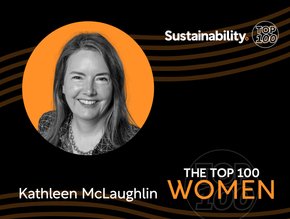Article
Diversity & Inclusion (D&I)
1 in 3 want to shop in sustainably sourced-only stores
By Helen Adams
June 03, 2021
undefined mins

One third of US consumers want to shop at sustainably-sourced clothing stores and look to fashion brands for trustworthy information on how to do so
A survey has revealed that consumers in the USA want to make more sustainably-sourced choices when shopping for clothes, but this is hindered by a lack of availability and trustworthy information on what makes clothing sustainable.
A new survey of 2,000 teenagers and adults in the U.S. from clean manufacturing leader Genomatica set out to understand consumers’ perspectives around sustainability in fashion.
Over a third said: “If there was a store for sustainable clothes, I’d do all my shopping there”.
31% would even support a “fast fashion tax” on clothing that’s unsustainable.
Consumers are aware of environmental issues in the fashion industry
Consumers want to make better choices, but they’re confused about what makes clothing sustainable and how or where to find it.
- 72% of consumers have heard of environmental sustainability issues in the fashion industry — listing excess consumption, carbon emissions and water pollution from dye processes as issues they’re aware of.
- 51% believe that Americans’ clothing purchases each year result in substantial greenhouse gas emissions.
- 38% who are aware of sustainability issues in fashion have only become aware of them over the pandemic period.
How clothing is made and what it’s made from are important considerations for consumers
- 58% of consumers care about the materials that make their clothes and want them to not be harmful to the planet.
- 47% rank clothing made with renewably-sourced or natural materials as a top sustainability characteristic, with around the same percent (46%) that list production processes with few to no toxic chemicals in their top three.
- 53% of consumers believe the majority of clothes are made of primarily synthetic material, slightly more than the number of consumers (47%) who realize fossil fuels (crude oil, coal, etc.) are the main building blocks of synthetic clothing.
Consumers are on the lookout for “greenwashing” in the fashion industry, but they still want brands to do the legwork to make sustainable choices easier
- 88% of consumers don’t immediately trust brands that say they’re sustainable and 51% believe “greenwashing” is common in the fashion industry.
- 55% want clothing brands to help them understand how their products are more sustainable than alternatives.
- 50% say that a sustainability label would help them identify sustainable clothes while shopping, and 38% say clearer information about sustainability features would make them want to purchase sustainable clothing.
- 44% believe brands are to blame for not prioritizing or providing enough convenient sustainable alternatives.
Share






